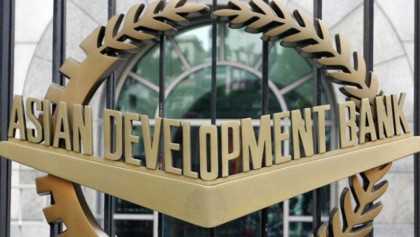ADB study pinpoints high costs of doing business in Bangladesh

Businesspersons and traders of Bangladesh often face high trade costs as a result of excessive official formalities. The intraregional trade costs of Bangladesh, Bhutan, and Nepal amount to a tariff equivalent of 186 per cent, the highest among a group of selected countries in other sub-regions in Asia and the Pacific.
A baseline study conducted by the Asian Development Bank (ADB) on ‘Trade and Transport Facilitation Monitoring Mechanism in Bangladesh’, released last month, made these and other startling revelations.
The business process analysis (BPA) showed that in a typical case, the costs for exporting plastic kitchenware and tableware from Bangladesh to Bhutan through Burimari LCS (land Customs station) are approximately Tk. 23,998 (USD 307.67), which do not include the costs of approximately Tk. 41,650 (USD 533.97) for completing onetime procedures as a new trader.
According to the ADB, taking all such procedures into consideration, the most expensive procedures include: obtaining membership in a local business association/ chamber (approximately USD 370, or 44 per cent of the total costs); transport (approximately USD 231, or 27 per cent of the total costs); and obtaining an export registration certificate (ERC) (approximately USD 118, or 14 per cent of the total costs). These three procedures account for 85 per cent of the trade costs in toto.
The results of the study showed that the most expensive trade procedures include: transportation of goods to the port of departure (approximately USD 231, or 75 per cent of the total trade costs); followed by the appointment of a C&F agent (C&F agent charges) (approximately USD 38 or 13 per cent of the total costs); preparation of export documents (approximately USD 26, or 8 per cent); and arrangement of a SAFTA Certificate of Origin (approximately USD 12 or 4 per cent of the total costs).
The ADB noted that the average official costs incurred along the Burimari–Dhaka corridor amounts to approximately USD 82. The costs mainly include tollway charges and other official charges along the way but exclude fuel costs and drivers’ salaries.
On the low speed of transport, the study said vehicles travel at 30 km/h, which is not a very high speed, and the total journey time, on an average, can be reduced from 30 hours to 15 hours, or by 50 per cent.
Major delays occurred in crossing the Jamuna Bridge. Most of the vehicles from Burimari used to carry 25 to 35 tonnes of goods. However, only 20 tonnes are permitted to be carried over the Jamuna Bridge.
Hence, the excess goods have to be transferred to a smaller cargo vehicle or truck for crossing the bridge. These loading and unloading procedures cause a delay of around three to five hours at this point of the corridor. This also significantly increases the official cost of the transportation through the route.
Another major source of delay is the entry barrier to Dhaka. Trucks are only permitted to enter Dhaka during night from 8pm to 8 am. As a result, most of the consignments have to wait outside Dhaka for a long time to enter the capital after 8pm. It was found that this waiting requirement extends the delay time at other stoppages.
It was also reported that the speed of consignment delivery is significantly reduced after passing the Jamuna Bridge, mainly because of the narrow road and excessive traffic on the road.
The findings from the BPA analysis revealed that in a typical case, the time required for importing lentils from Nepal to Bangladesh through Banglabandha is 15 days.
In the case of a new trader, an additional 18 days is required to fulfil the general documentary requirements. It normally takes one to two days to complete a single procedure, and there is no particular procedure that takes much longer than other procedures.
The BPA showed that in a typical case, the costs for importing lentils from Nepal to Bangladesh through Banglabandha LCS amount to approximately Tk. 69,140 (USD 886.41), which do not include the costs of approximately Tk. 43,950 (USD 563.46) for completing onetime procedures (obtaining all the necessary licences/certificates/permits) for a new trader.
Taking all procedures (including onetime procedures for the new traders) into consideration, the most expensive procedures include obtaining membership in the local business association/chamber (approximately USD 370, or 26 per cent of the total costs), transport (approximately USD 513, or 35 per cent of the total costs), and an import registration certificate (IRC) (approximately USD 147, or 10 per cent of the total costs); these three procedures account for 71 per cent of the trade costs in toto.
When the onetime procedures are excluded from the analysis, ADB shows that the most expensive trade procedures include the transportation of goods from the border crossing to the importer’s warehouse (approximately USD 513, or 58 per cent of the total trade costs), followed by the procedures LC opening costs (approximately USD 264 or 30 per cent of the total costs), C&F agent charges (approximately USD 81 or 9 per cent of the total costs) and preparation and endorsement of import documents (approximately USD 26, or 3 per cent).
Besides, an existing importer has to complete 13 distinct procedures for importing lentils from Nepal to Bangladesh through Banglabandha LCS.
Furthermore, an additional six onetime procedures are required for a new trader. In other words, a new trader has to go through 19 procedures to complete the import process.
Regarding the number of documents for imports, the ADB found 18 documents were required to complete the import process. However, these documents have to be submitted repeatedly—a total of 71 times. A new trader, who has to complete all onetime procedures, requires 27 documents to complete the import process—and these documents have to be submitted 93 times.
Source: http://www.theindependentbd.com